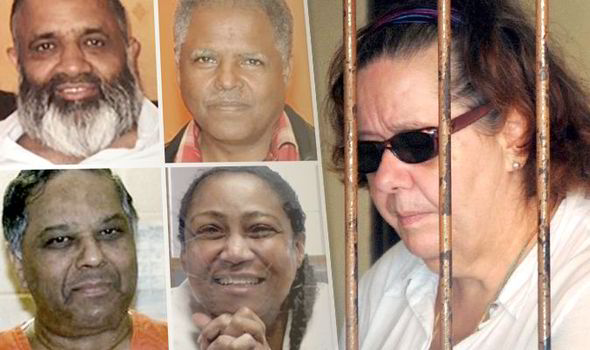LAHORE (Staff Report) – While Pakistan has suspended hangings in the holy month of Ramazan, Britain is raising concerns over the fate of its five citizens who are facing execution for drug offences in Pakistan.
The existence of the five, including one woman, was disclosed in the Pakistani parliament by Interior Minister Chaudhry Nisar Ali Khan, the Daily Mail reported.
But the minister did not release further details – even their names, information about their crimes or the dates of their trials.
It is thought from the wording of his answer that the five may hold both UK and Pakistani passports.
However, a Foreign Office spokesman said he was aware of two of the prisoners Mr Nisar mentioned.
There are a further 20 Britons who ‘potentially’ face the death penalty, he added, but they had either not yet been sentenced or still had a chance to appeal.
A total of 179 prisoners have been put to death in Pakistan since December, and there are more than 8,000 prisoners on death row.
Read more: Pakistan halts executions in Ramazan
Although Pakistan is obliged under the Vienna Convention to notify the British Consul whenever a British citizen or dual Pakistani-British national is detained, in practice this rarely happens, according to a Foreign Office source.
The source said British diplomats had repeatedly raised this problem with the Pakistani authorities.
Fears for the five have risen due to the surge in executions in recent months.
There had been no hangings since 2008, but Pakistan announced they would resume in the wake of the terrorist massacre at a school in Peshawar on December 16 last year, when 145 people were killed, including 132 children.
At first, the hangings mostly related to prisoners convicted of terrorist crimes. They were members of the Taliban, Al Qaeda and the Lashkar-e-Jhangvi (LeJ), the organisation behind the 2007 assassination of former prime minister Benazir Bhutto.
But a Mail analysis of every hanging since the executions resumed reveals that although at least 11 men from these groups were hanged up to February 3, no members have been executed since.
The only alleged terrorists executed since then were four men who hijacked a plane in 1998 – they were all members of a provincial separatist group.
On March 10, the government announced it wanted to empty death row, and would start hanging prisoners who were neither terrorists nor murderers.
It has kept this promise. Under Pakistani law, the death penalty is available for crimes including blasphemy, drug-trafficking, kidnap and rape.
Since March, some weeks have seen more than 30 executions, and hangings carried out at less than 24 hours’ notice – leaving prisoners’ families no time to pay a final visit.
The execution of Aftab Bahadur, hanged on the basis of a confession to murder “extracted through torture” when he was just 15, provoked outrage around the world from human-rights campaigners.
Read more: Aftab Bahdur Masih hanged in Kot Lakhpat Jail
There will be no further hangings in Pakistan until the end of Ramazan in mid-July.
















